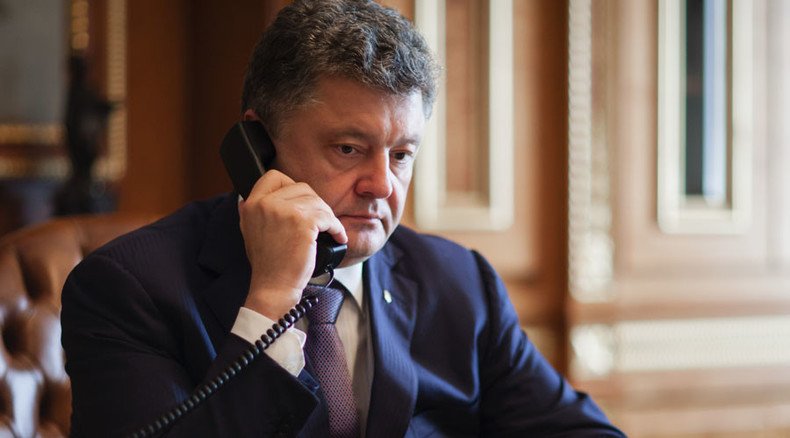Some of Kiev’s Western creditors refuse haircut

A group holding $500 million in Ukrainian Eurobonds maturing on September 23 is ready to block the country’s restructuring deal, Bloomberg reports. The investors claim to have a veto right, which implies their stake is at least 25 percent of the debt.
Shearman & Sterling, a US law firm representing the group of bond holders, e-mailed a statement to Bloomberg, saying its client's investments are delayed for more years than others. The statement added that these private bond holders have enough muscle to block the deal.
This is not the first time Shearman & Sterling has called Kiev’s agreement with creditors unfair. In late August, a creditor committee led by Franklin Templeton (which owns about $7 billion of Ukrainian bonds) agreed a 20 percent write-off of some $18 billion worth of Eurobonds.
READ MORE: Debt holders consider Ukraine restructuring deal “unfair”
"It has been suggested that all bondholders should get identical packages of new bonds," said the company last week.
However, the main difference is the blocking power. When the group’s discontent first arose, Ukraine’s Finance Minister, US-born Natalie Jaresko, said the investors represented by Shearman & Sterling didn’t have enough of a stake to veto the deal and their objections would not have any effect.
Ukraine is obliged to restructure its multibillion dollar debt in order to get a $17.5 billion loan from the IMF. The deal is on the verge of collapse, as Russia, one of Ukraine’s biggest creditors, has refused to accept a haircut on the $3 billion due in December despite Kiev’s threats.
Russia not a hedge fund - Ukraine should pay debt in full - Finance Minister http://t.co/UqIsOLn7Erpic.twitter.com/VtEUsgrLFY
— RT (@RT_com) September 7, 2015In response to Ukraine’s Prime Minister Arseny Yatsenyuk’s demand for Russia to write off part of the debt, Moscow left the following answer on the government website:
“The so-called debt operation, which Russia takes no part in, cannot ease Ukraine’s debt burden. It is in the debtor’s best interests to pay back the Russian Federation immediately, as a default on these liabilities will turn out much more expensive for Ukraine, which will have to pay both litigation costs and penalty interest for overdue payments.”
LISTEN MORE:












